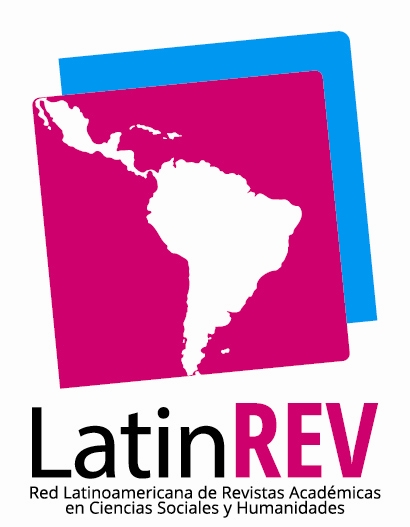Capitalism-Division versus Socialism-Integration: Some notes about thechanges in the riverside of the vibrant Arauca
Keywords:
Constitution of the Bolivarian Republic of Venezuela, socialism of the 21st century, revolutionary protagonist democracy, nationalist welfare regime, chavismAbstract
This article intends to scrutinize the recent Venezuelan experience of socio-political transformation promoted by President Hugo Chávez, embodied in the Constitution of the Bolivarian Republic of Venezuela of 1999. The categories to be examined in the Venezuelan Constitution are based on four basic principles for establishing a division between capitalism and socialism, defined as ownership, market and State relations, the distributionof wealth and the sense that takesfreedom. In an effort to overcome the isomorphic equivalence between legality and legitimacy of policy, the analysis of the Constitution shall be made bearing in mind the material conditions of existence. Thus, we illustrate the contrastbetween the "socialism of the 21stcentury" by the hand of "revolutionary protagonist democracy" and the construction of a "nationalist welfare regime”based on the nationalization of production, with emerging social organizations framed into thepopularand alternative economy. This framework, characterized by a subsidiary State, is marked by the presence of "bolibourgeoisie" and weak linkages with the struggles of the working class whichcaused an impact on the defeat of the referendum of 2007 and the reconstruction of the right.
Downloads
References
Altamira, J. (2008). “Es necesario combinar la lucha contra el imperialismo con la independencia respecto a los movimientos nacionalistas”, en Razón y Revolución, 18, segundo semestre de 2008, Argentina: Ediciones RyR.
Banco Mundial (2004). Informe sobre el desarrollo mundial. Servicios para los pobres, versión en español, Estados Unidos.
Bilbao, L. (2008). “Es falso que fue la presión de los trabajadores la que obligó a Chávez a nacionalizar SIDOR, es al revés”, en Razón y Revolución, 18, segundo semestre de 2008, Argentina: Ediciones RyR.
Galeano, E. (1984). Memoria del fuego (2). Las caras y las máscaras. Argentina: Catálogos.
Gambina, J. (2008). “La sociedad mundial está amenazada por la ofensiva del capital, que ante la crisis se propone relanzar la estrategia de dominación”, en Razón y Revolución, 18, segundo semestre de 2008, Argentina: Ediciones RyR.
Guerrero, M. (2010). “América Latina, síntomas preocupantes”, en Corriente Político Sindical, Rompiendo Cadenas, 3(9), Noviembre 2010, Argentina. Recuperado de: http://www.cpsrompiendocadenas.blogspot.com
Hayek, F. (1966). “Los principios de un orden social liberal”, trabajo presentado en el encuentro de Tokio de la Sociedad de Mont Pèlerin, setiembre de 1966.
Lemoine, M. (2010). “El desafío de la Policía Nacional Bolivariana”, en Le Monde diplomatique, el Dipló, 135, setiembre de 2010, edición Cono Sur.
Marx, K. (1875). “Glosas marginales al Programa del Partido Obrero Alemán. Crítica del Programa de Gotha”, en Marx, K. y Engels, F. (1975) Obras Escogidas, Tomo II, Editorial Ayuso, España.
Neves, L. (2008). “Políticas sociales contemporáneas: tesis para la discusión”, en Revista Argentina de Educación, XXV, setiembre de 2008, Argentina.
Petras, J. y Veltmeyer, H. (2009). Espejismos de la izquierda en América Latina, Editorial Lumen, México.
Proyecto Nacional Simón Bolívar “Primer Plan Socialista –PPS- Desarrollo Económico y Social de la Nación 2007-2013”, República Bolivariana de Venezuela. Recuperado de: https://unamvenezuela.wordpress.com/wp-content/uploads/2016/01/proyecto-nacional-simc3b3n-bolc3advar-2007-2013.pdf
Schlez, M. (2009). “Camarada capitalista. Chávez frente al avance obrero y a la agudización de la crisis mundial”, en El Aromo, periódico cultural piquetero, VII (49), Julio-Agosto 2009.
Stolowicz, B. (2007). “Los desafíos del pensamiento crítico, texto leído en el marco del 40º Aniversario de CLACSO”, Colombia, 25 de octubre de octubre de 2007.
Woods, A. (2008). “Los sectarios están cegados por su odio a Chávez, lo que los hace entrar en conflicto con las aspiraciones de las masas”, en Razón y Revolución, 18, segundo semestre de 2008, ediciones RyR.
Downloads
Published
Issue
Section
ARK
License
Copyright (c) 2012 Verónica Quiroga

This work is licensed under a Creative Commons Attribution 4.0 International License.






